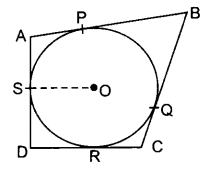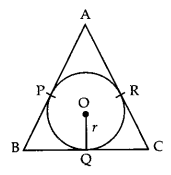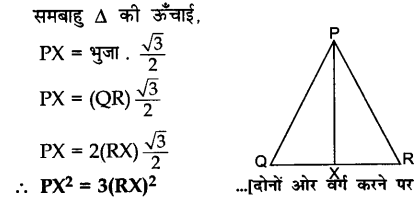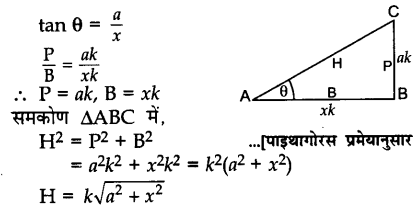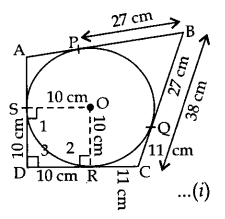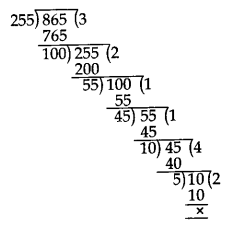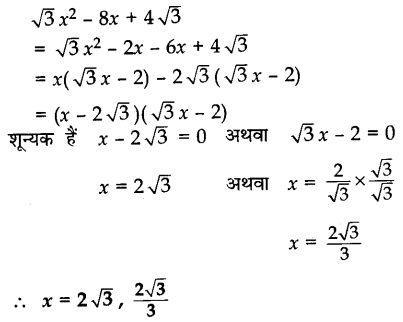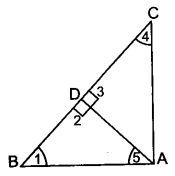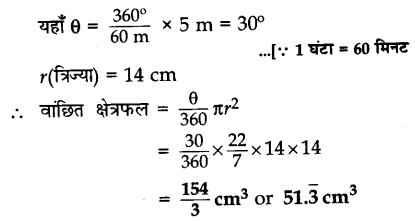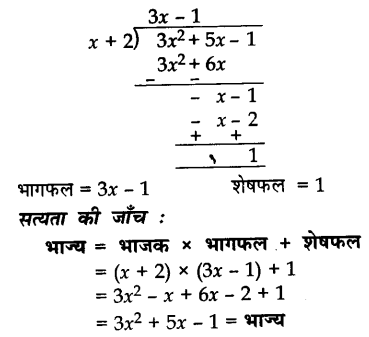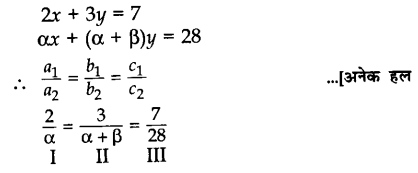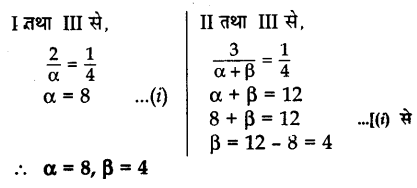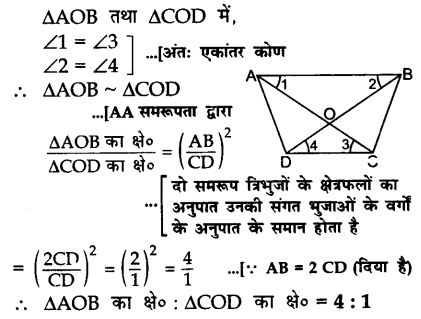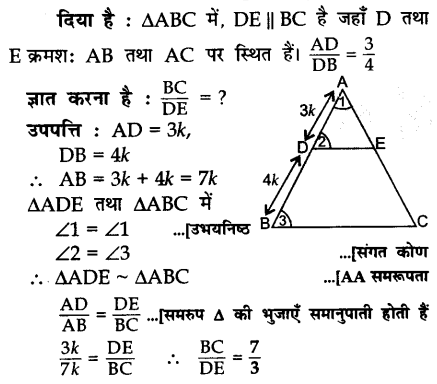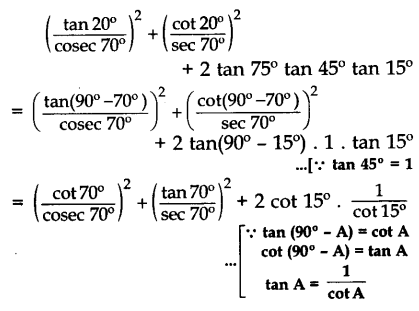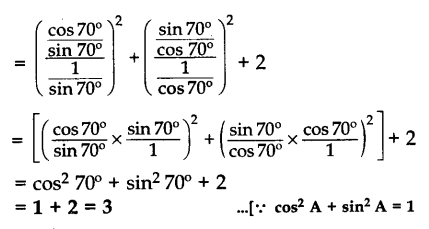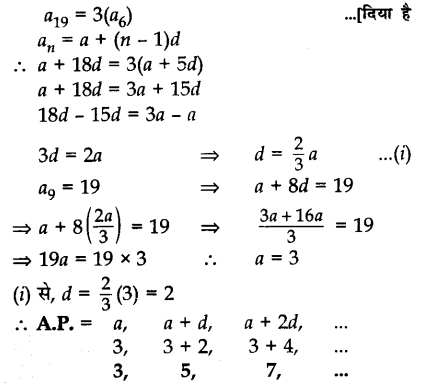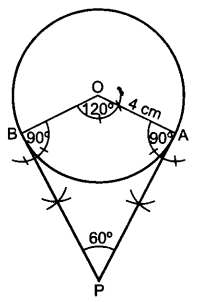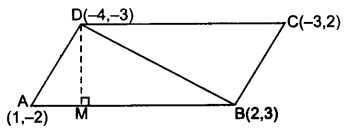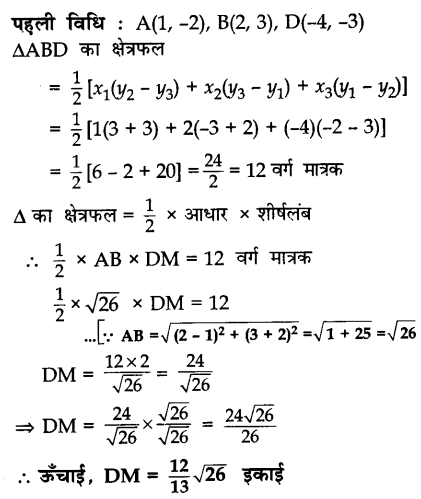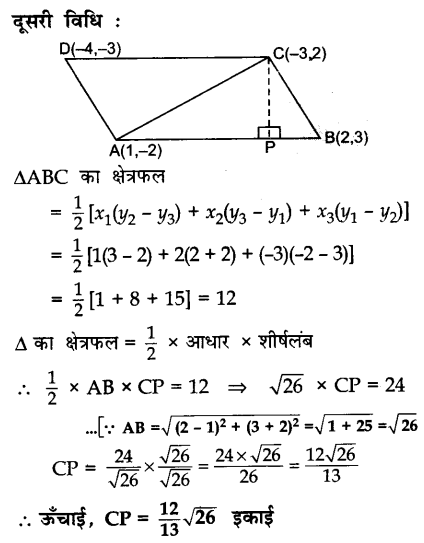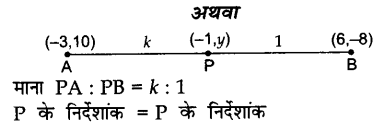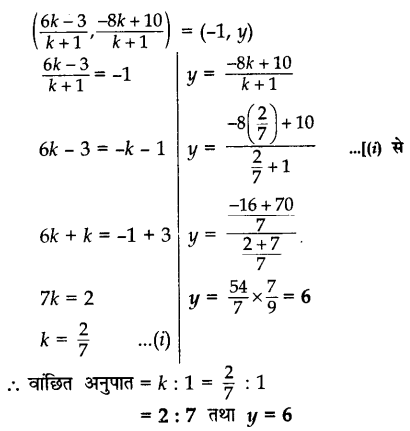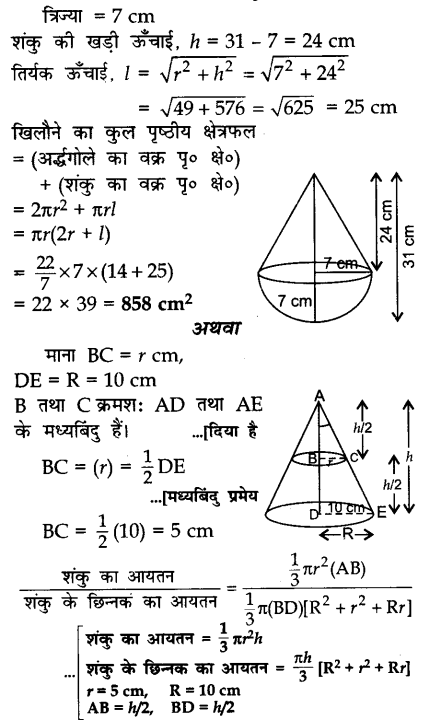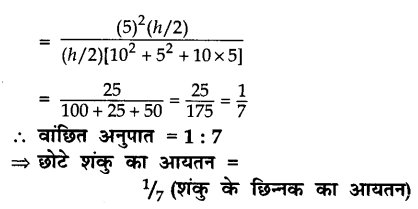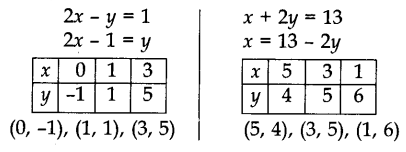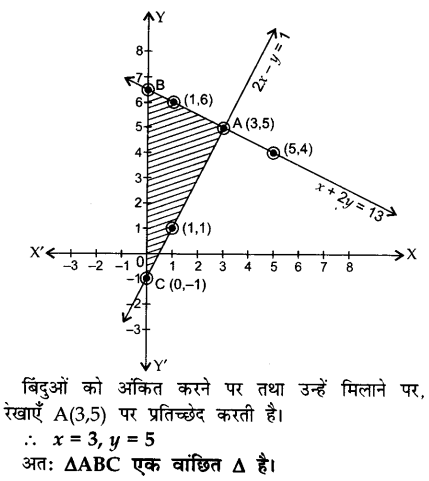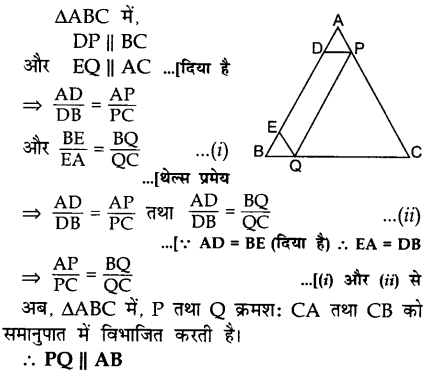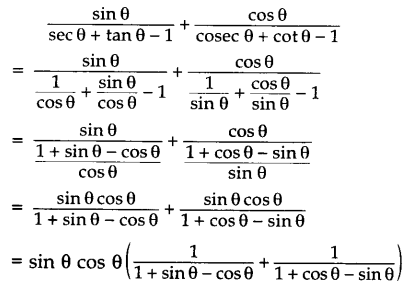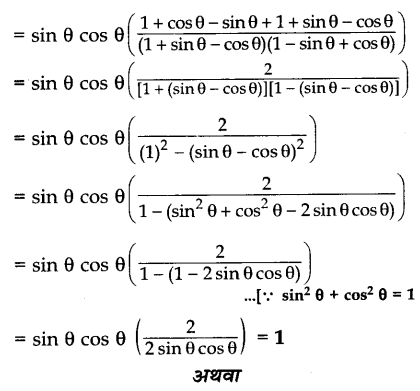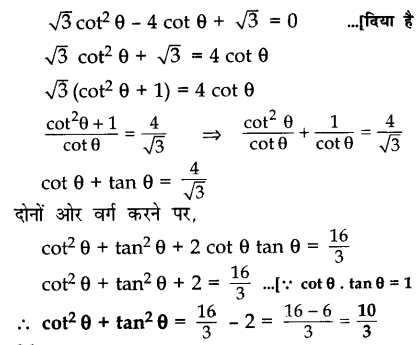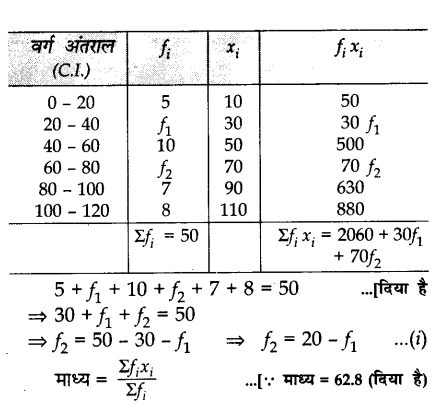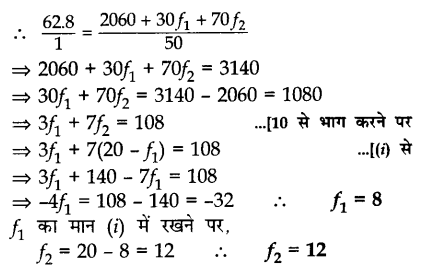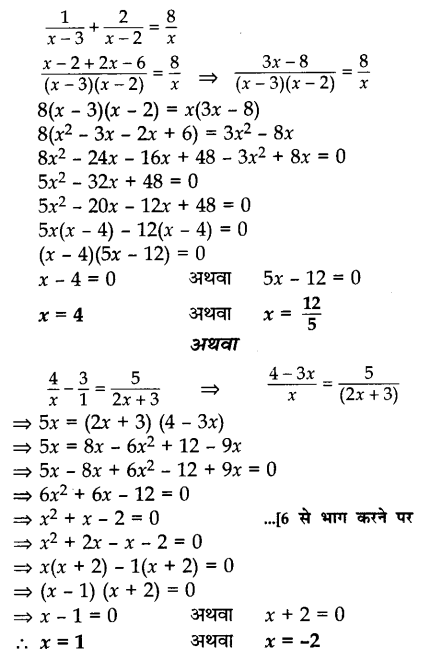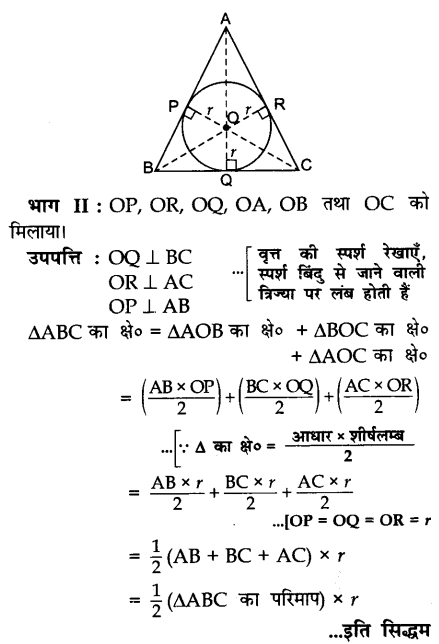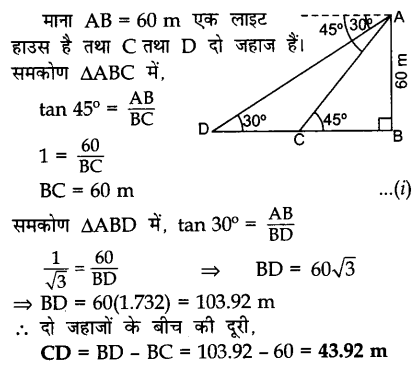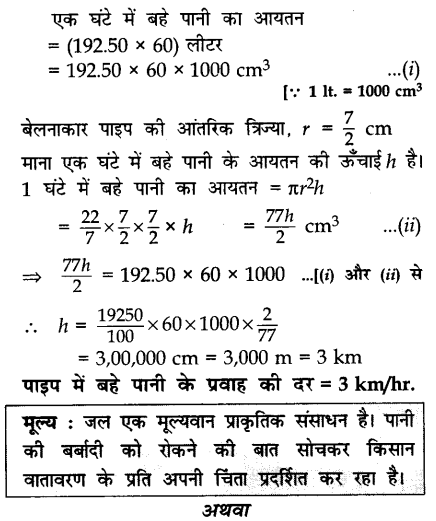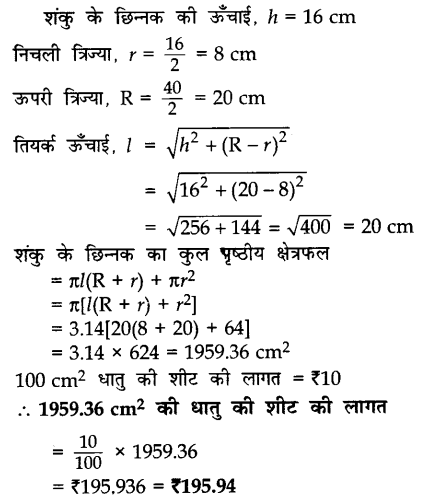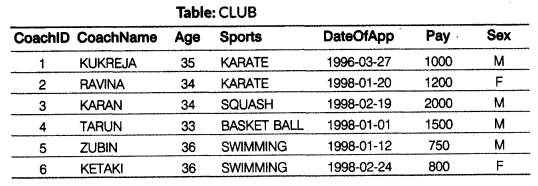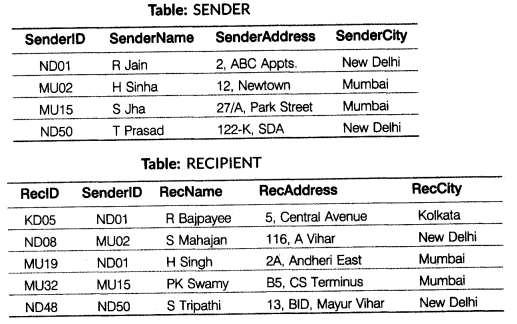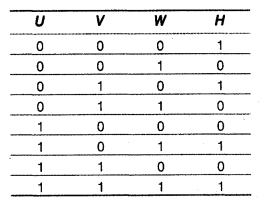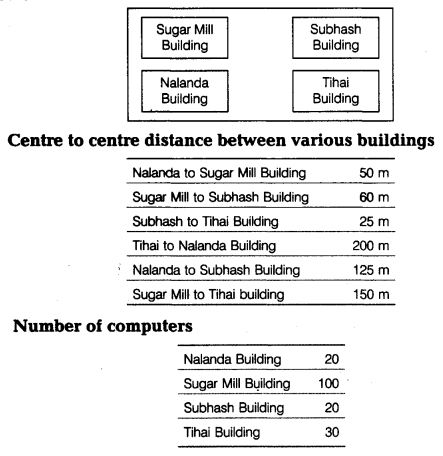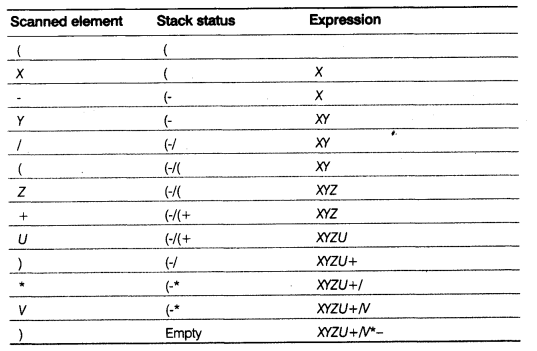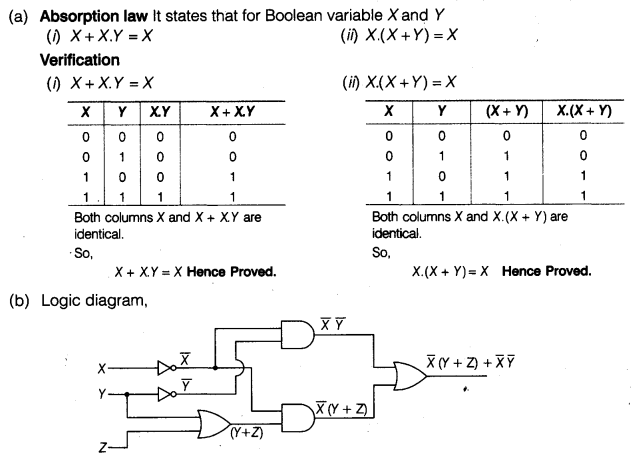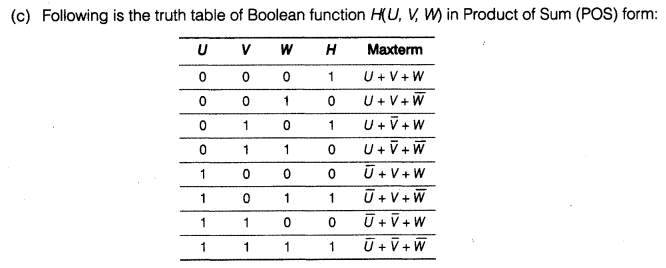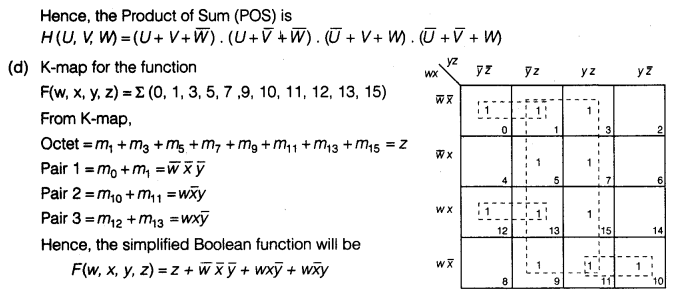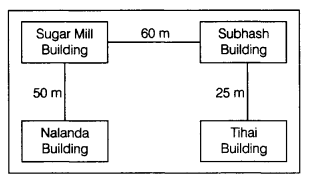CBSE Sample Papers for Class 9 English Language and Literature Paper 4 are part of CBSE Sample Papers for Class 9 English Language and Literature. Here we have given CBSE Sample Papers for Class 9 English Language and Literature Paper 4.
CBSE Sample Papers for Class 9 English Language and Literature Paper 4
| Board | CBSE |
| Class | IX |
| Subject | English Language and Literature |
| Sample Paper Set | Paper 4 |
| Category | CBSE Sample Papers |
Students who are going to appear for CBSE Class 9 Examinations are advised to practice the CBSE sample papers given here which is designed as per the latest Syllabus and marking scheme as prescribed by the CBSE is given here. Paper 4 of Solved CBSE Sample Papers for Class 9 English Language and Literature is given below with free PDF download solutions.
Time : 3 hours
Maximum Marks: 100
General Instruction:
- This question paper is divided into three sections.
- Section A: Reading 20 Marks
- Section B: Writing and Grammar 30 Marks
- Section C: Literature (Textbooks) 30 marks
- All the questions are compulsory.
- All the questions of a particular section must be attempted in the correct order.
Section (A)
Reading (20 Marks)
Questions.
Question 1.
Read the passage given below. (8 Marks)
1. Facebook’s free-but-restricted internet service, Free Basics, has been banned in India after the country’s national telecom regulator ruled that the programme and others like it infringe the principles of net neutrality.
2. The decision from the Telecom Regulatory Authority of India (TRAI) comes after a long battle between Facebook and the country’s net neutrality advocates. Free Basics was blocked temporarily in India last December while the TRAI considered its case, but other services like Airtel Zero had previously been the subject of protests. But although Facebook’s attempt to offer subsidised content wasn’t the only such programme in India, it was particularly visible. After its temporary ban, the company started a campaign to try and win public support, reportedly spending nearly $45 million promoting Free Basics with billboards and newspaper advertisements.
3. Facebook CEO Mark Zuckerberg even wrote an op-ed in The Times of India defending the programme, expressing surprise that there was any debate over the virtues of Free Basics at all. “Instead of wanting to give people access to some basic internet services for free, critics of the programme continue to spread false claims — even if that means leaving behind a billion people”, he wrote, adding: “Who could possibly be against this?”
4. However, critics of Free Basics and zero-rating in general argue that the practice creates an unfair marketplace. By subsidising consent, companies like Facebook get pick and choose winners, creating incentives for Customers to use certain services because they don’t eat into their data. This in turn makes it harder for smaller players to compete and quashes innovation.
5. Facebook argued that Free Basics not only offered free access to Facebook (of course), but also a range of helpful sites that offered resources like weather reports and health information. (Cellphone usage in India is relatively high, but it’s estimated that only around 19 per cent of the population have access to the internet.) Opponents of Free Basics, though, argued that Facebook was being disingenuous. Although, Free Basics didn’t include any advertisements, they said it did collect user data, suggesting that the company was just laying the groundwork for a time when India’s population could be monetised via ads.
6. In the end, though, Facebook’s campaigning has come to nothing. In a press release,
the TRAI notes that its decision was “guided by the principles of net neutrality”, and that its end goal is “to ensure that consumers get unhindered and non-discriminatory access to the internet.” Whether or not it achieved this goal is sure to be debated in India and around the world. (478 words)
1.1 Attempt any eight of the following questions on the basis of the passage you have read. (1×8 = 8)
(i) What resulted in the ban on Free Basics in India? (1)
(ii) Why did TRAI temporarily block Free Basics? (1)
(iii) How much money did Facebook spend to promote Free Basics and why? (1)
(iv) Mark Zuckerberg expressed surprise on what issue? (1)
(v) What did the critics argue for Free basics and zero-rating? (1)
(vi) How did Facebook defend itself? (1)
(vii) What was the result of the debate over Free Basics in India? (1)
(viii) What is TRAI’s end goal? (1)
(ix) What ultimately quashes innovation?
Question 2.
Read the passage given below. (12)
1. Travelling plays an important role in our education. The terms ‘travelling’ and ‘education’ cannot be alienated from each other. Our education remains incomplete without travelling.
2. ‘Travelling’ means going from one place to other places. In ancient times, travelling was very difficult and risky because there were no proper roads and transports. A traveller had to pass hills and forests. He had to face the fury of nature, wild beasts, robbers and many other obstacles.
3. Travelling also removes the narrowness and superstitions of man. It makes a traveller smart and self-reliant. Owing to the fabulous progress in the field of communication, travelling today involves less hazards. Hence, students must take part in educational tours. It is both entertaining and instructive for them.
4. Travelling is now regarded as an important part of education. An educational tour increases our knowledge and new thoughts and ideas grow up in us. The education of man remains incomplete if he does not visit important places of the world. Reading of books only provides man with half knowledge. But, travelling with eyes wide open and mind fully active gives him full knowledge.
5. The education of a student remains incomplete without travelling. Educational institutions and tourist bureaus often arrange study tours at affordable rates. Many schools and colleges arrange visits to places that are of geographical or historical importance. Visits to historical places give students a practical insight of the past events. After visiting these historical places, when these students read about those places or events, they are able to fully understand the subject.
6. It is very difficult to understand the nature of various types of soils, forests etc simply by reading textbooks. Travel to places of geographical importance also helps a student to grasp the depth of the subject.
7. It has been observed that in cities, students are travelling twice a year either with their respective school/ college or with their parents or friends, because there is no financial problem with them. However, students of village schools are deprived of such travel for want of money. Government should look into the matter and make arrangement for educational tours in village schools. (353 words)
2.1. On the basis of your reading of the passage, answer any four of the following questions in 30-40 words each. (2×4 = 8)
(i) How does travelling educate a person? (2)
(ii) What is travelling according to the author? (2)
(iii) What are the advantages of travelling? (2)
(iv) How does an educational tour help a student? (2)
(v) Who are deprived of educational tours? Why? (2)
2.2. On the basis ofyour reading of the passage, answer any four of the following. (1×4 = 4)
(i) Which word in paragraph 2 is a synonym of ‘anger’? (1)
(ii) Find out the word opposite in meaning of ‘reinforcements’ in paragraph 2. (1)
(iii) Find out the antonym of ‘broadmindedness’ as used in the paragraph 3. (1)
(iv) Which word in the paragraph 5 means the same as reasonable? (1)
(v) Which word in the last paragraph means the same as ‘Deprived’? (1)
Section (B)
Writing and Grammar (30 Marks)
Question 3.
A candlelight protest march was organised at Jantar Mantar to draw the attention of the government towards ‘Crime Against Women’ this evening. You also participated in this protest march. You are Rajan/ Rajni, a student of class IX. Taking ideas from the clues given below, write a diary entry in 100-150 words. (8)
| Today a red-letter day for me – huge number of youths present – silent march for victims – march organised by an NGO – feeling happy at the awareness |
Or
Write a descriptive paragraph about your favourite cartoon character based on the hints given below.
| Name of character-description-qualities – what you like the most about it |
Question 4.
Write a story in 150-200 words with the help of the following outline. (10)
| You were beside bedroom window—a spacecraft acroos the sky—a few tiny stick like. Figures—gadgets—sample of grass, flowers—took some photo with cellphone—a circular burnt mark—confused and saddened—evidence. |
Or
Given below are some clues. Based on these clues develop a short story in 150-200 words.
| Kevin eagerly waiting for holidays — one cousin visits him — does many stupid things — helps in tracing stolen stamp album — both Kevin and Max rewarded by the police —Kevin happy with his cousin. |
Question 5.
Fill in any four of the blanks in the paragraph given below with the help of options that follow. (1×4=4)
It (a)….. the afternoon of a cold, grey December day. The streets outside glistened (b) ….. snow and (c) ….. white sparking flakes struck the window panes (d) …… melted (e) ….. them.
(a) (i) is (ii) were (iii) had (iv) was
(b) (i) by (ii) on (iii) with (iv) in
(c) (i) any (ii) some (iii) a (iv) no
(d) (i) and (ii) but (iii) or (iv) so
(e) (i) our (ii) on (iii) by (iv) in
Question 6.
In the given passage, one word has been omitted from each line. Identify the missing word and write it along with the word before and the Word after against the correct blank number. Attempt any four. (l/2×8=4)

Question 7.
Rearrange the following words or phrase to form meaningful sentences. Do any four. (1×4=4)
(a) old/people/a/we/acceptability/feeling/should/give/of
(b) consume/carbon/is/the/dioxide/plants/food/that
(c) feared/snakes/and/by/in/our/are/worshipped/many/country
(d) a book worm/is not/much uselful/be/to/it
(e) The/plausible/to be//appear/does not/story
Section (C)
Literature (Textbooks) (30 marks)
Question 8.
Read the extracts given below and answer the questions that follow. (1×4 = 4)
Then the matter Of
scorching and choking
In sun and air,
Browning, hardening,
Twisting, withering,
And then it is done.
(i) Whose ‘scorching’ and ‘choking’ is the poet talking about?
(ii) What task is being accomplished here?
(iii) What has happened in the previous stanzas?
(iv) How is the tree killed finally?
Or
Thinking to humour his disconsolate charge by a gift of sweets, thbman took him to the counter of the sweet shop.
(i) Who is the ‘disconsolate charge’ in the above extract?
(ii) What did the man want to achieve by offering sweet to the ‘disconsolate charge’?
(iii) Which word in the extract is a synonym of ‘laughter’?
(iv) What does ‘disconsolate’ mean?
Question 9.
Answer any five of the following questions in 30-40 words each. (2×4 = 8)
(i) Where did the two roads diverge? What was the difficulty?
(ii) What was Einstein’s ‘Special Theory of Relativity’ about?
(iii) In what way is Iswaran an asset to Mahendra?
(iv) What kind of place was made for Baba (Bruno) at the author’s house?
(v) What did Sue try to do to make Johnsy cheerful?
(vi) Explain the secret of Santosh Yadav’s success.
Question 10.
Answer any one of the following questions in 100-150 words. (8)
On the basis of “If I were You” Chapter explain that planning is very important but one can’t afford to undermine one’s opponent.
Or
What message does the poet give us through the poem, ‘No Men are Foreign’?
Question 11.
Answer any one of the following questions in 100-150 words. (8)
Write a brief character sketch of the Happy Prince.
Or
The fire weaved a web of hardships and difficulties around the author and his family in the chapter ‘A House is not a Home’. Explain.
Answers.
Answer 1.
1.1
(i) Free Basics has been banned in India after the country’s national telecom regulator ruled that this programme and others like it infringe the principles of net neutrality.
(ii) TRAI temporarily blocked Free Basics due to a long battle between Facebook and the country’s net neutrality advocates.
(iii) Facebook spent nearly $ 45 million to promote Free Basics to win public support.
(iv) Mark Zuckerberg expressed surprise that there was any debate over the virtues of Free Basics at all.
(v) The critics argued that Free Basics and zero-rating would create an unfair marketplace.
(vi) Facebook defended Free Basics by arguing that not only did it offer free access to Facebook, but also access to a range of helpful sites that offered resources like weather reports and health information.
(vii) In the end, Facebook’s campaigning came to nothing and it decided to shut down Free Basics in India.
(viii) TRAI’s end goal is to ensure that consumers get unhindered and non-discriminatory access to the internet.
(ix) An unfair market place ultimately quashes innovation by making it harder for small players to enter.
Answer 2.
2.1
(i) Travelling helps a lot in educating a person by increasing his knowledge so that new thoughts and ideas grow up in him.
(ii) According to the author, travelling means going from one place to other places, mr1 ng the traveller acquainted with new things.
(iii) The advantages of travelling are that it removes a person’s narrowness and superstitions. It also makes a traveller smart and self-reliant.
(iv) An educational tour helps in increasing a student’s knowledge and ideas. Travelling makes him alert and competent to understand the geographical or historical importance of a place.
(v) Students of village schools are deprived of educational tours due to lack money
2.2
(i) The word ‘fury’ is a synonym of ‘anger’.
(ii) ‘obstacles’
(iii) narrowness
(iv) The word ‘affordable’ means the same as ‘reasonable’.
(v) dispossessed
Answer 3.
Friday, 17th August, 20XX
11:00 PM
Dear Diary
Today was a red-letter day for me, as I participated in a huge candlelight demonstration at the historic Jantar Mantar monument. Students and youth from all over the country were present. It was a silent and peaceful march where everyone prayed for the poor souls who were victims of various crimes such as dowry death, rape, domestic violence and other similar offences. The march was organised by a well-known NGO working for the cause.
I was happy to see the awareness of this problem even among the boys and men who participated in the march. I returned home with a feeling that now the government will listen to us and take strict action against the offenders. It was a good experience for me.
Rajan
Or
I like to watch cartoons and there are many cartoon characters I like. Some of them are Tom, Doremon, He-Man, Mickey Mouse etc. However, the cartoon character that I like the most is Jerry. Jerry is a mouse that appears in my favourite cartoon show, Tom and Jerry Show. I have been watching Jerry in the Tom and Jerry Show since I was a kid. He is portrayed in the cartoon series as a small mouse which is brown in colour. The other character in the show is Tom, the cat. Tom is much bigger than Jerry and is always after it. This is so because Jerry is habitual of teasing Tom. Jerry plays a lot of pranks on Tom and is not fearful of the big-size cat at all. It is a lot of fun watching both of them running after each other. It seems obvious to viewers that Tom would be able to get hold of Jerry but that doesn’t happen. It is the prankster, Jerry, who wins in the end and steals the show. I enjoy this show so much and am always in awe of Jerry.
Answer 4.
Encountering a UFO
One night I was sitting beside my bedroom window. Suddenly, I saw a bright spot in the sky which was drawing nearer and nearer. When it came very near my home, I saw that it was a bright spacecraft like an overturned saucer floating across the sky. As I watched, the object came lower and slowly landed in my garden. Soon, the door of the spacecraft opened and a few tiny stick-like figures emerged.
I was completely numb with amazement. These odd creatures were carrying gadgets which I had never seen. They walked about the garden, collecting samples of grass, flowers, inserts and leaves, finally making their way back towards the spaceship. I quickly took some photos of them with my cellphone camera to share with my friends.
I could not hear them speak anything. The only sound they made was like the chirping of a bird. Soon they had all entered the spacecraft. Its door closed and a few moments later, the spacecraft was airborne again, leaving only a circular, burnt mark on the grass as a sign of its ever having come here. The spacecraft left as silently as it had come. When I went through the photos I had taken, not a single photo showed anything at all. I was totally confused and saddened that I did not have evidence of what I had witnessed first hand.
Or
Kevin’s exams were over and he was eagerly looking forward to his holidays. Suddenly, the doorbell rang and one of his cousins named Max, who was known to be very careless and destructive, entered. He announced to Kevin, “I have come to stay here for the holidays.” saying this, he jumped on Kevin’s bed and damaged his crayons. Kevin was now sure his holidays were going to be spoiled. That evening there was a news item regarding the world famous Dick Brown’s stamp album being stolen. The announcer warned all stamp collectors to keep their stamp albums safe.
Kevin’s stamp album was with one of his friends, so he decided to get it back and keep it safely. He could not get time earlier to do so. Thus, he decided to send Max to collect the album from his friend. Kevin gave Max the address of his friend. Max soon came back with the album. When Kevin checked, he found that it was not his album; instead, it contained many valuable stamps. Kevin felt that it must be the stolen album that belonged to Dick Brown. Kevin contacted the police and informed them about the album. Kevin and Max were both rewarded for having found Dick Brown’s album. Kevin became happy with Max after this. However, the mystery remained about how Dick Brown’s album reached Kevin’s friend.
Answer 5.
(a) (iv) was
(b) (iii) with
(c) (ii) some
(d) (i) and
(e) (ii) on
Answer 6.

Answer 7.
(a) We should give old people a feeling of acceptability.
(b) Carbon dioxide is the food that plants consume.
(c) Snakes are worshipped and feared by many in our country.
(d) It is not much useful to be a book worm.
(e) The story does not appear to be plausible.
Section (C)
Literature (Textbooks)
Answer 8.
(i) The poet is talking about the ‘scorching’ and ‘choking1 of the roots of the tree,
(ii) The killing (cutting) of a tree is being accomplished here.
(iii) In the previous stanzas, the stem of the tree has been hacked and chopped and then the roots are pulled out from the ground.
(iv) When the strength of the tree, i.e. its roots, is expened to the air, then the sun dries and burn the roots. The sun and air choke it so that the roots are exhausted and the tree is finally killed.
Or
(i) The ‘disconsolate charge’ is the lost child in this extract.
(ii) The man wanted to divert the child from his sorrow of being separated from his parents by offering him sweets.
(iii) The word is ‘humour’.
(iv) It means extreme sadness and disappointed.
Answer 9.
(i) The two roads diverged in a forest. There was the problem of making the right choice. The author found it difficult to decide which road to take to reach his destination.
(ii) Einstein’s ‘Special Theory of Relativity’ was about the relation between mass and energy. According to it, time and distance are not absolute. Two perfectly accurate clocks will not show the same time if they came together after a journey.
(iii) Iswaran is an asset to Mahendra because he does many things for him. He cooks for him, washes his clothes and chats with him at night. He tries to entertain Mahendra by narrating stories to him. He is thus, a valuable asset for Mahendra.
(iv) An island was made for Baba at the author’s house. It was surrounded by a dry pit. A wooden box was placed in the island for Baba to sleep at night. Things Baba played with were also kept on the island.
(v) Sue talked about clothes and fashions to Johnsy to make her cheerful. She also started painting in Johnsy’s room and whistled while working to make Johnsy interested in things.
(vi) Santosh Yadav was a lady of strong will power, great physical endurance and extraordinary mental toughness. Her single-minded determination and dedication helped her overcome all the hurdles to emerge as a winner. She was a true hard worker and sincere lady who never gave up her dreams.
Answer 10.
To complete a task, one of most important step is ‘planning’. It is a step by step execution of one’s thoughful actions to obtain desired results. If one doesn’t plan well then there are more chances of failures. A well-planned things give you the freedom to execute the plans well, but they might collapse in the end. In the chapter ‘If I were you’, the intruder was a meticulous planner. He had worked out everything in detail and had gathered almost all the facts about Gerrard. He had kept a close eye on all the activities of Gerrard, his possessions like car and the persons families with him, yet he failed in killing Gerrard.
This shows that even if you have planned well, you need to consider your expectation. Therefore, you should not undermine your opponent because he might find holes in your plan. Hence, it is advisable to consider your opponent’s strength with careful planning to fulfil your aspirations.
Or
In the poem ‘No Men are Foreign’, the poet gives a universal message of brotherhood among all human beings. He reminds us in different ways that all human beings are similar. Despite being from different countries, speaking different languages, believing in different religions etc, we are all similar we are human being. So, the poet teaches us the values of humanity, brotherhood, love and compassion. All men, though they wear different dresses, have similar bodies. They all equally enjoy the sun, air, water, and live and die on this Earth.
The poem criticises war and says that we can win over others through love and not by power or waging a war. But, if we are in brotherhood we can share the joys of being together and enjoy the peace. Our misdeeds, hatred and jealousy have no end which pollute our humanity. Therefore, we must remain infact to our values, ethics and dignity.
Answer 11.
As the name of the story shows,he was really a happy prince till his death. When he died his state was placed on a tall column so that he could understand the sufferings of his people. He had deep feeling for them in his heart and became sad and emotional after seeing their sufferings.
He wished to help them but was unable to do so. When he was alive, he was very much unaware of his people’s sufferings and sorrows. But, after his death, he got to know about their misery and sorrows as he was mounted on a tall column.
He tried to help them by asking the swallow to do so. He was very much kind and self-scarificing, hence he gave away all the jewels and gol leaf to the needy and poor of his city. By this he became happy again even after his death.
Or
Hardships are the part of one’s life as no one remains unaffected by it if it is to be happened. As mentioned in the story ‘A House is not a Home’, ‘the Fire’ destroyed the author’s house completely causing immense loss of wealth and belongings. The author lost his pet cat also. Due to destruction of money, credit cards, identity proofs in the fire, his mother had not only to borrow money from his grandparents but also to take shelter at their home.
The author lost his personal belongings like school bag, note-books and homework. He was forced to go to school without essential school material. He even borrowed shoes from his aunt to attend the school. ‘ All of these things were like a mental trauma for him.
But gradually, he learned to come to terms with all this realising that hardships and difficulties are part of life. Only perseverance and determination can help one overcome hardships. ‘Stay firm and move on as there comes morning after every night’ seems to be message of the story.
We hope the CBSE Sample Papers for Class 9 English Language and Literature Paper 4 help you. If you have any query regarding CBSE Sample Papers for Class 9 English Language and Literature, drop a comment below and we will get back to you at the earliest.









